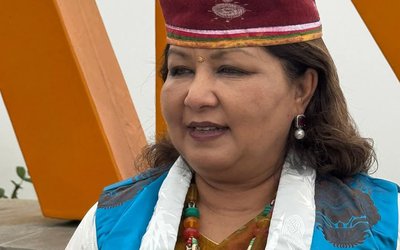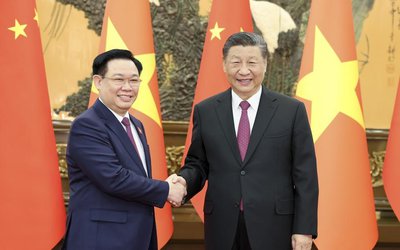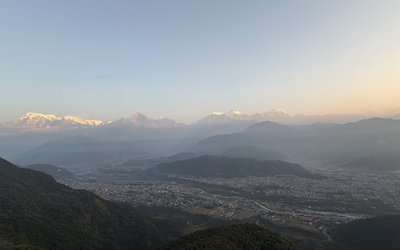
Although the four major political parties have consented to hold the elections, they have a number of disagreements over the election process. The differences further widened after the Election Commission presented four election related ordinances.
It seems that the election is unlikely in November if it is not held in June. Along with voters’ list, there are also issues related to constituency delineation, and voting age. “We will reconsider our stand if the election is not held in June,” said Rajendra Mahato, leader of Sadbhavana Party.
UCPN-Maoist led coalition has already made it clear that it won’t accept the provision that requires securing one percent votes to get the recognition as a national party. Similarly, Nepali Congress and CPN-UML want to bar the persons involved in criminal activities from contesting elections. UCPN-Maoist has also made it clear that it will go to the streets in case the government didn’t come out with a new elections program.
“There is a conspiracy against elections. We need to prepare to launch an agitation to press the government,” said UCPN-Maoist leader Prachanda.
At a time when major political forces are divided over several issues, holding the elections in June is now uncertain. The government is likely to announce the decision on elections within a few days following its consultation with the Election Commission.
The threat of CPN-Maoist is also a major reason behind the uncertainty in holding the polls. CPN-Maoist has threatened to come out with more destructive programs to disrupt the election process if it is held without its consent.
CPN-Maoist requested President Dr. Ram Baran Yadav to summon a round table meeting and rejected negotiations with the present government. Meanwhile, UCPN-Maoist leaders accused the present government of not announcing the election date for June.
Election Date
The interim government and Election Commission are likely to propose elections for November. Privately, leaders of four major political parties agree that it is impossible to hold the elections in June giving a tacit support to the proposal. However, they are showing different postures in public as leaders of parties don’t want to take any blame for the postponement of elections.
After intensive discussions with various government institutions, the Commission has made it clear that it requires at least 70 days to commence the election process. Given the current unstable political situation when CPN-Maoist and 33 parties have issued a threat to disrupt the election process, holding the elections in June is unlikely.
If things remain as they are now, even the November poll is unlikely. After intensive discussions with political parties, the Elections Commission forwarded three ordinances to the government to amend the existing laws related to election. The government also discussed the bills in an all party meeting. It will be likely that the president will promulgate three ordinances paving the way to initiate the election process including publication of voter lists.
Delay In Appointment of Judges
Following the disputes in the Judicial Council over the recommendation of judges for Supreme Court, appellate courts and district courts, the process of selection of candidates halted for an indefinite period. This is likely to delay the appointment of judges.
As acting chief justice Damodar Prasad Upadhyaya and senior justice Ram Kumar Sha, both of them members of Judicial Council, opposed the proposal presented by Nepal Bar Association to pick up 50 percent candidates from Bar, the process was stopped indefinitely. Justices are demanding more recommendation from career judges of appellate courts. Due to retirement of justices, there are now just seven justices in the Supreme Court. Earlier, the Council was considering recommending 14 names to be appointed as permanent and temporary judges at the court.
Similarly, appointments in various constitutional bodies are unlikely in the near future. Members of political mechanism are waiting for the verdict of Supreme Court on former chief secretary Lok Man Singh Karki.
Possible Scenario
If the government fails to hold the elections, the rift among the four parties will intensify. In this case, president Dr. Ram Baran Yadav will have to step in, even by inviting CPN-Maoist leaders to make some sort of political negotiations. Once president takes any move to start the negotiations with Vaidya group, this is likely to intensify differences between four parties and president. In this case, UCPN-Maoist is likely to raise the agenda for revival of the old Constituent Assembly.

Keshab Poudel
Poudel is the editor of New Spotlight Magazine.
- KUL MAN GHISING: Bowing Down To The People
- Apr 13, 2025
- POLITICAL VIOLENCE: Culture of Impunity
- Apr 11, 2025
- PM OLI MEETS PM MODI: No Progress
- Apr 09, 2025
- PM OLI’S THAILAND VISIT: Flip Flop
- Apr 08, 2025
- FM Dr. Deuba’s India Visit: Mission Aborted
- Mar 26, 2025















